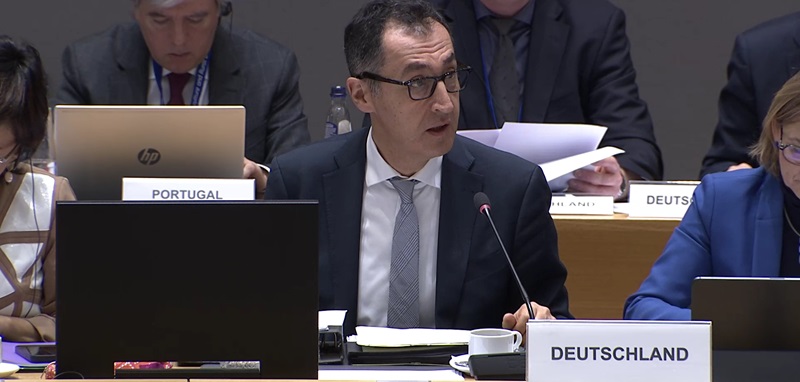News
No majority in favour of GMO deregulation among EU agriculture ministers
Fast-track deregulation has failed for the moment
Alexander Hissting, Managing Director of the Association for Food without Genetic Engineering (VLOG) comments: "Fortunately, the attempt to fast-track the deregulation of genetic engineering has failed for now. The German Agricultural Minister Cem Özdemir rightly said very clearly during the vote in Brussels that the current plan would pose an existential threat to the billion-euro organic and 'Ohne Gentechnik' (Non-GMO) markets.
It is important that Germany now convinces other EU countries that coexistence, transparency and labelling are also essential for new genetic engineering. Because the supporters of deregulation will very quickly continue to exert pressure and try to organise a majority after all. Today's vote is at least a brief break for consumers, organic and 'Ohne Gentechnik' sectors - but nothing more. A lot of persuasion is still needed on all levels!"
Spain tries to set EU states on deregulation course
The debate and vote in the EU Council of Agriculture Ministers on 11 December 2023 was eagerly awaited and the outcome was uncertain until the very last moment. Spain, which still holds the six-monthly rotating presidency of the EU Council until the end of the year, is trying by all means to commit the EU Member States to a pro-genetic engineering deregulation course before the end of its term of office. According to her own statements and background information from Brussels, it will continue to try to achieve this before Christmas 2023.
Even a majority would not be a final decision
Even if this majority would be achieved, it would still not be the final decision and the end of the debate. Further votes in the European Parliament are due in January 2024, followed by further votes between the Commission, Council and Parliament. At the very end, there would be another final vote by the Member States. However, an early, unilateral commitment by the Member States to far-reaching deregulation would be a conceivably bad signal.
Germany's Agricultural Minister Cem Özdemir abstained from voting in Brussels because the Traffic Light coalition does not have a unified position on this issue. For the majority in this vote, this nevertheless had the effect of a negative vote and contributed to the fact that the required so-called "qualified majority" was not achieved.
Özdemir: "Those who want to farm GMO-free must also be able to do so in the future"
Cem Özdemir said in Brussels: "Those who want to farm GMO-free must also be able to do so in the future. We need genuine freedom of choice across the entire food chain. To achieve this, we need regulations for coexistence so that a functioning market worth billions is not destroyed. People want to know which products they are buying. I want consumers to be able to make their own decisions. They don't need advice from anyone.
Businesses in the food retail sector have also spoken out strongly in favour of transparency in the interests of consumers. Many farmers earn good money with Non-GMO products - this must also be possible in the future." With a hint to the further process, the Minister added: "The fact that there was not the necessary majority of Member States in the Council today is therefore also a clear mandate to take further action on the crucial points.
Özdemir on the vote on NGT in the Food and Agriculture Council in Brussels 11 December 2023 (in German)
Video statement (approx. 4 min) by Cem Özdemir after the vote in Brussels on 11 December 2023
Handelsblatt (dpa): EU states fail to find a position on deregulation of GMO (in German)
Infodienst Gentechnik: Not enough votes for GMO liberalisation in the Agriculture Council (in German)
SPD parliamentary group: GMO - protecting consumers (in German)
Der Schweizer Bauer: EU agriculture ministers vote opposing GMO-deregulation (in German)

